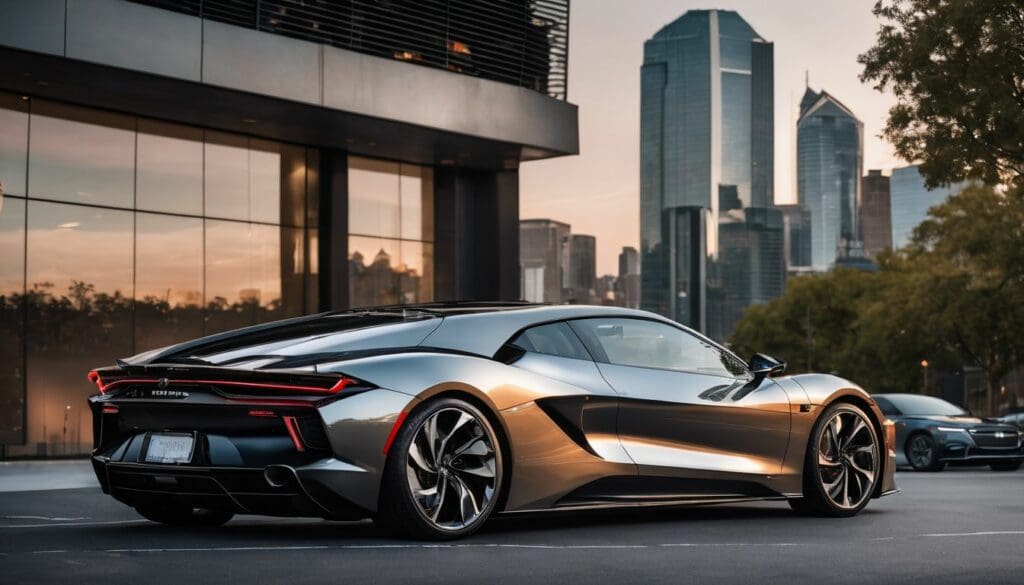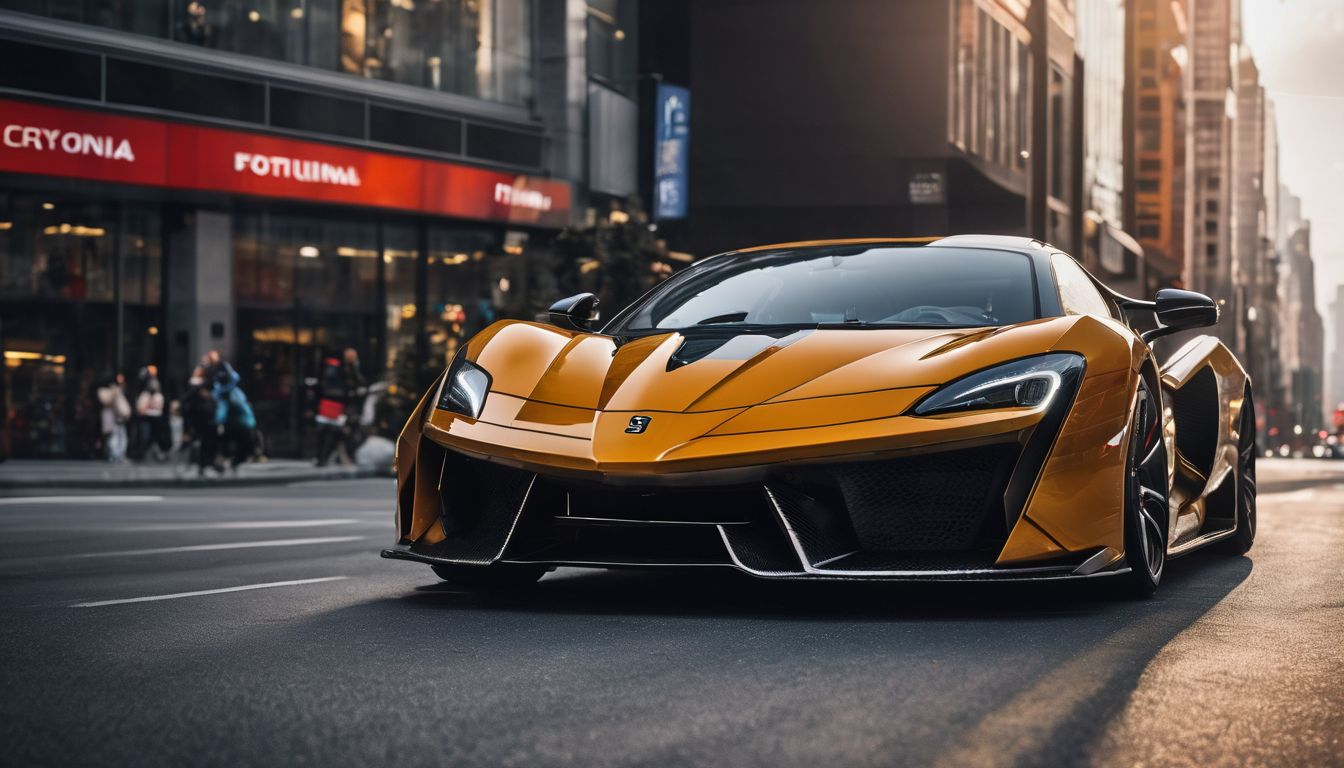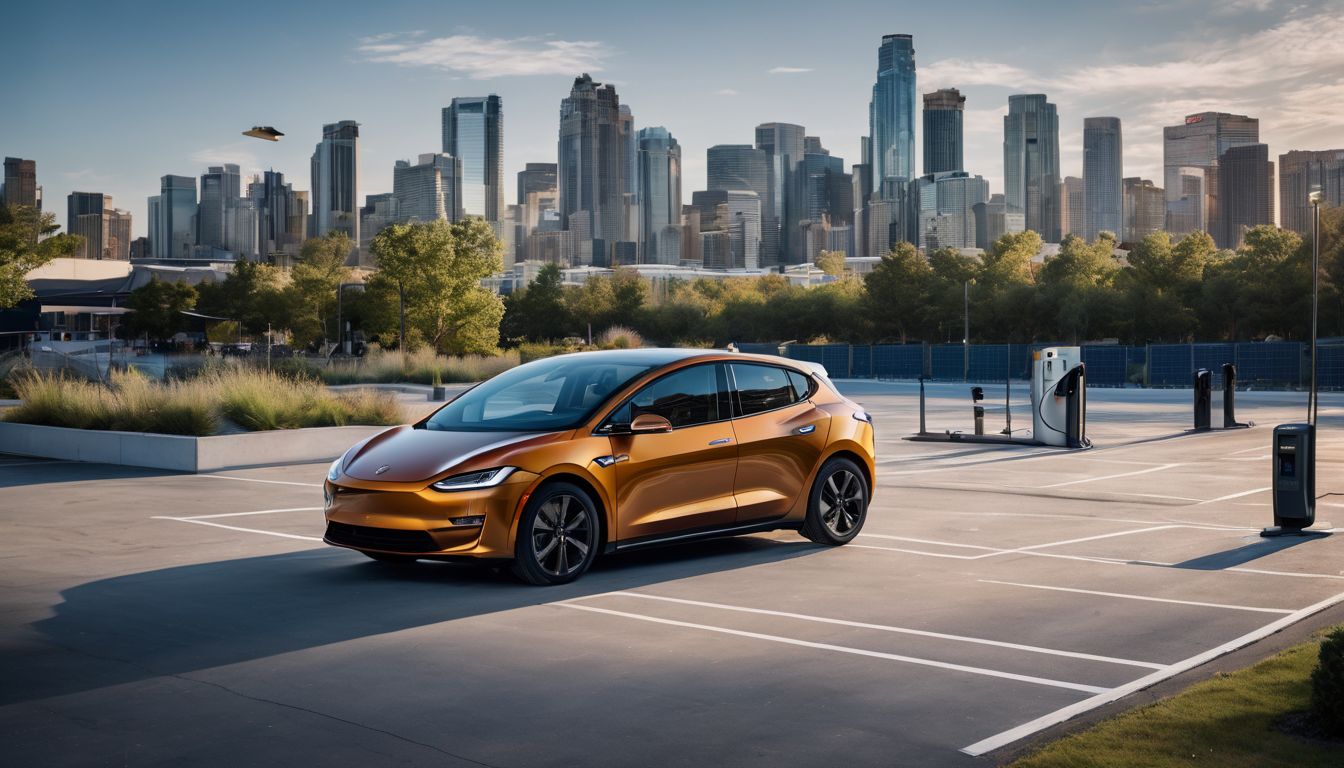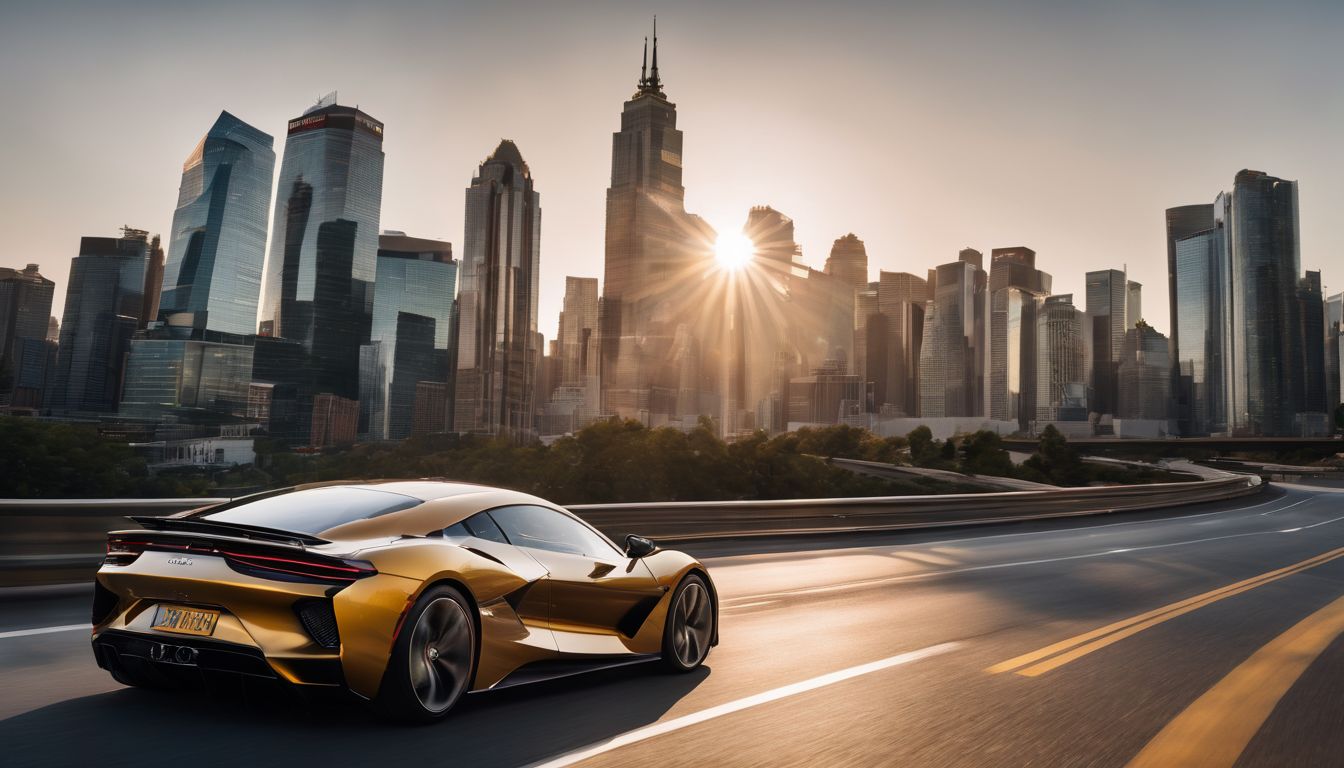The unmistakable growl of petrol engines in sumptuous automobiles is steadily being replaced by the serene whisper of electric power. Much like yourselves, we’ve taken keen notice of this transformation and have immersed ourselves thoroughly to comprehend what it means for enthusiasts who take great pride in their opulent motors.
Our feature delves into everything from the virtues and hurdles of embracing electric luxury vehicles to how prestigious marques are navigating these new waters. Do continue reading; after all, change can be quite exhilarating!
Key Takeaways
- Luxury car brands are investing in electric vehicles to meet consumer demands for sustainable and eco-friendly transportation, with advancements in technology improving range and driving experience.
- The market for electric luxury cars is growing, supported by developments in charging infrastructure and incentives like tax credits that make these vehicles more affordable over time.
- Despite challenges such as limited range and high initial costs, manufacturers are addressing these concerns with improved battery technologies and expanding charging networks.
- Intense competition among luxury car brands is fuelling innovation, leading to state-of-the-art features like autonomous driving capabilities and smart infotainment systems.
- As the industry continues to evolve, the shift towards electric cars suggests a decline in traditional petrol-powered luxury vehicles’ dominance.
Benefits of Electric Luxury Cars
Electric luxury cars offer a range of benefits including positive environmental impact, advanced technology features, enhanced performance and driving experience, cost efficiency and the development of infrastructure for charging solutions.
These factors contribute to the appeal of electric luxury cars in the automotive market.
Environmental Impact and Sustainability
Switching to electric luxury cars dramatically reduces the pollution that traditionally comes from petrol-powered engines. Every time we choose an electric vehicle, we contribute less carbon dioxide and fewer harmful particulates into the atmosphere.
It’s not just about lowering emissions; it’s also about supporting a shift towards renewable energy sources that power these ecofriendly vehicles. This aligns our transportation choices with a cleaner, more sustainable future.
We recognise the vital role of sustainability in shaping our planet’s health. Driving electric luxury cars means relying on batteries instead of burning fossil fuels, which leads to a significant drop in greenhouse gases over the car’s lifetime.
As avid supporters of conservation and environmental care, we embrace this transition as part of our commitment to protect natural resources for generations to come. Making this switch is more than a personal choice; it’s a collective step towards preserving our environment and embracing green technology across the automotive industry.
Technological Advancements and Innovative Features
Luxury car brands are continuously innovating and integrating advanced technologies into their electric vehicles, ensuring an exceptional driving experience. These cutting-edge features include state-of-the-art battery systems, regenerative braking technology, and sophisticated energy management systems that optimise performance and range.
Moreover, luxury electric cars boast advanced infotainment systems with interactive touchscreens, voice recognition capabilities, and seamless smartphone integration for a futuristic driving environment.
Additionally, manufacturers are incorporating autonomous driving capabilities along with enhanced safety features such as collision avoidance systems and advanced driver-assistance technologies to provide a secure yet luxurious driving experience.
Electric luxury cars also feature innovative design elements aimed at enhancing aerodynamics for improved efficiency while showcasing sleek aesthetics that captivate modern consumers.
From lightweight materials like carbon fibre used in the construction of the vehicle to elegant interior finishes crafted from sustainable and eco-friendly materials – these unique design elements demonstrate a commitment to sustainability without compromising on opulence.
Performance and Driving Experience
Electric luxury cars offer an invigorating driving experience with instant torque delivery, providing a smooth and responsive acceleration. The advanced electric platform ensures a quieter ride, enhancing the overall comfort and serenity within the vehicle.
Cutting-edge technology combined with high-performance electric motors delivers an exhilarating driving experience while maintaining environmental consciousness. Electric luxury vehicles are engineered to provide exceptional agility and handling, offering a refined yet thrilling driving dynamic.
Additionally, regenerative braking systems contribute to the overall efficiency of these vehicles, further enhancing their appeal to environmentally conscious individuals.
Cost Efficiency and Savings
Transitioning from discussing performance and driving experience to cost efficiency and savings, it’s crucial to consider the financial advantages of electric luxury cars. By embracing electric vehicles, consumers can expect long-term cost savings through reduced fuel expenses.
Moreover, lower maintenance costs due to fewer moving parts in electric vehicles also contribute to significant long-term savings. The shift towards electric luxury cars aligns with environmentally conscious individuals’ values, providing an opportunity for sustainable living while enjoying financial benefits.
Furthermore, the growing infrastructure of charging stations and incentives such as tax credits amplify the affordability factor associated with electric luxury cars. The combination of reduced operational costs and increasing governmental support positions electric luxury cars as a financially prudent choice for environmentally conscious consumers who prioritise sustainability without compromising on quality or comfort.
Infrastructure Development and Charging Solutions
To support the growing electric vehicle market, luxury car brands are actively involved in infrastructure development and charging solutions. As electric cars become more prevalent, manufacturers are collaborating with governments and private entities to expand the charging network, making it more convenient for consumers to recharge their vehicles.
Additionally, innovative technologies such as fast-charging stations and enhanced battery capabilities are being introduced to address concerns about limited range and improve overall efficiency.
Luxury car manufacturers recognise that a robust charging infrastructure is crucial for the widespread adoption of electric vehicles. Therefore, they continue to invest in research and development aimed at improving charging solutions while leveraging advancements in renewable energy sources.
Challenges in the Transition to Electric Luxury Cars
Limited range and charging infrastructure pose challenges for the adoption of electric luxury cars, along with the high initial cost and concerns about battery life and reliability.
However, these challenges are being addressed by manufacturers as they strive to meet consumer demands for sustainable and innovative driving experiences.
Limited Range and Charging Infrastructure
Luxury electric cars presently face a challenge of limited driving range and inadequate charging infrastructure, hindering their widespread adoption. Many consumers remain cautious due to concerns over running out of charge during long journeys or lacking convenient access to charging stations.
As a result, the development of an extensive and efficient charging network is crucial to alleviate these worries and encourage more consumers to embrace electric luxury vehicles. Improvements in battery technology are also key for enhancing driving ranges, addressing this limitation as electric car manufacturers continue to invest in research and innovation.
The evolution of electric vehicle technology must coincide with the expansion of accessible charging infrastructure, catering to the growing demand for luxury electric cars. It’s essential that industry stakeholders work collaboratively towards bolstering the availability and convenience of charging points across urban centers and long-distance routes, ensuring that environmental enthusiasts have greater faith in transitioning towards sustainable transportation options.
High Initial Cost and Depreciation
Addressing the high initial cost and depreciation of electric luxury cars is crucial for environmentally conscious buyers. While these vehicles may have a higher upfront price compared to traditional petrol-powered luxury cars, the long-term savings from reduced fuel and maintenance costs can offset this initial investment.
Additionally, as technology advances and charging infrastructure improves, the depreciation rate of electric luxury cars is expected to decrease, making them a more attractive option in the future.
Transitioning to electric luxury cars may require a mindset shift regarding financial considerations but understanding the long-term benefits and potential for reduced depreciation will be pivotal in driving consumer adoption towards sustainable transportation options.
Consumer Concerns about Battery Life and Reliability
Electric luxury cars are applauded for their sustainability, but concerns about battery life and reliability persist. Consumers prioritise a dependable driving experience, fearing potential issues with battery performance and longevity.
These apprehensions impact purchasing decisions in the luxury car market, prompting manufacturers to focus on enhancing battery technology to address consumer worries. As environmentally conscious individuals support conservation efforts, understanding that reliable electric vehicles are essential for sustainable transportation is key.
Luxury car brands must actively engage with consumers to assuage fears regarding the durability of electric vehicle batteries. Ensuring that these high-end cars possess long-lasting power units can ease customer concerns and boost confidence in the shift towards electric mobility.
Luxury Brands Embracing Electric Vehicles
Luxury car brands are increasingly embracing electric vehicles in response to the growing demand for environmentally friendly options. From Aston Martin to Volvo, many luxury manufacturers are making strides in developing electric models.
https://www.youtube.com/watch?v=S3k-X52sfVI
Market Response and Consumer Preferences
Luxury car brands are responding to the increasing consumer preference for electric vehicles, with many manufacturers introducing electric models. Consumer preferences also reflect a growing demand for sustainable and environmentally friendly transportation options.
This shift in preferences is driving luxury car brands to invest in electric vehicle technology and develop innovative features that align with market trends and customer expectations.
Consumer behavior plays a significant role in shaping the market response to electric luxury cars. As more consumers seek eco-friendly alternatives and advanced technological features, luxury car manufacturers are compelled to adapt their product offerings accordingly.
This trend is evident in the expanding range of electric models introduced by renowned luxury brands, reflecting an industry-wide commitment to meeting consumer demands.
Brand Competition and Market Dynamics
Luxury car brands are fiercely competing in the electric vehicle market, driving dynamic shifts in consumer preferences. Manufacturers like Jaguar, Mercedes-Benz, and Audi are vying for dominance through cutting-edge technology and sleek designs.
This intense rivalry spurs innovation and heralds exciting advancements such as improved battery life and faster charging solutions.
Consumer trends play a pivotal role in shaping the market dynamics of luxury electric cars. The strong demand for eco-friendly vehicles is compelling manufacturers to adapt swiftly to meet customer expectations.
Jaguar, Alfa Romeo, Chrysler, Lotus, Aston Martin, Bentley, Buick, Cadillac, Genesis, Lexus, Maserati, Mazda, Mercedes-Benz, Mini, Rolls-Royce, Volvo, Audi, Chevrolet, GMC, Acura, Honda
The Future of Electric Cars in the Luxury Segment
The future of electric cars in the luxury segment holds promising market trends and predictions, potentially impacting traditional petrol-powered luxury cars. To learn more about this exciting shift to electric in luxury car brands, keep reading!
Market Trends and Predictions
Luxury car brands are increasingly investing in electric vehicles, reflecting a growing demand for sustainable and environmentally friendly transportation options. Market trends indicate a shift towards electric luxury cars, driven by consumer preferences for eco-conscious alternatives.
As technology continues to advance and infrastructure expands, the adoption of electric vehicles in the luxury segment is predicted to rise steadily over the coming years. Manufacturers are expected to focus on offering innovative features and addressing concerns about range limitations and charging infrastructure.
The transition to electric luxury cars is poised to revolutionise the automotive industry, with an emphasis on sustainability and cutting-edge advancements shaping the market’s evolution.
The burgeoning trend towards electric vehicles reflects a significant change in consumer behaviour within the luxury car market, signalling a promising future for environmentally friendly driving experiences.
With this shift comes opportunities for continuous improvement and breakthroughs that will define tomorrow’s luxurious driving experience.
Impact on Traditional Petrol-Powered Luxury Cars
The rise of electric luxury cars is reshaping the automotive landscape, impacting traditional petrol-powered luxury vehicles. As environmentally conscious individuals seek sustainable alternatives, the demand for electric cars continues to grow.
This shift in consumer behaviour is compelling luxury car manufacturers to pivot towards producing more electric vehicles and invest in innovative technology to remain competitive in the evolving market.
Luxury brands are increasingly focusing on sustainability and environmental impact, with many incorporating electrification into their long-term strategies. The introduction of electric models alongside existing petrol-powered options reflects a commitment to meeting customer trends and preferences for eco-friendly transportation solutions.
As electric vehicle manufacturers continue to innovate and enhance their offerings, traditional petrol-powered luxury cars face mounting pressure to adapt and compete effectively in this changing landscape.
Potential for Technological Advancements
Luxury car brands are constantly investing in cutting-edge technology to enhance the performance and driving experience of electric vehicles. Advancements in battery technology, such as solid-state batteries with higher energy density, could significantly increase the range of electric luxury cars.
Furthermore, sophisticated driver assistance systems and autonomous driving features are being integrated into electric vehicles to improve safety and convenience for consumers.
In addition, rapid developments in vehicle connectivity and entertainment systems are transforming the interior experience of luxury electric cars. Seamless integration with smart devices, advanced infotainment platforms, and personalised digital services cater to the evolving needs of tech-savvy consumers seeking a luxurious yet sustainable driving experience.
Conclusion
In conclusion, the transition to electric luxury cars is transforming the automotive industry. Luxury car brands are responding to consumer demands for sustainability and innovation.
Market trends indicate a promising future for electric vehicles in the luxury segment, driving technological advancements and reshaping consumer behavior towards environmentally conscious choices.
The shift to electric marks an exciting era of change, positioning luxury car brands at the forefront of sustainable mobility solutions.
FAQs
1. What is the electric shift in luxury car brands?
The electric shift refers to high-end, luxury vehicle segment brands transitioning from petrol and diesel engines to battery-powered, electric models.
2. Why are luxury car brands moving towards electric cars?
Luxury car brands are adapting to the changing consumer behavior which favors environmentally friendly options and they want a strong position in the growing electric car market.
3. How does this electric transition affect how consumers choose luxury vehicles?
As more people become aware of environmental issues, their behavior is shifting towards choosing efficient and eco-friendly luxury cars that boast both style and sustainability.
4. Are all new cars from luxury brands going to be fully electric?
Not immediately; however, many are adding more electric models to their lineups while planning for a future where fully-electric vehicles dominate the luxury segment.





